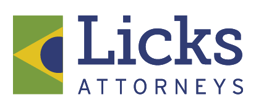Press Releases
Licks Attorneys opens the firm's second largest office in São Paulo
Licks Attorneys opened its new office in São Paulo this Thursday (28), in line with the expansion of the team in the state capital. Over the past five years, the number of professionals in the city has grown by more than 70%. The move takes Licks Attorneys to a space of approximately 16,146 ft² in the North Tower of the United Nations Business Center (CENU), one of the São Paulo's most strategic corporate addresses, located in the Berrini region.
With international certifications and high-standard infrastructure, CENU is a landmark in corporate architecture and hosts some of Brazil's leading companies and multinationals. The move reinforces the firm's commitment to providing a modern and integrated structure for its professionals and clients.
“In recent years, we've grown steadily in São Paulo, and we recognized that it was time to take a step forward in response to this trend. CENU offers infrastructure, location, and prestige that reflect where we are today and where we’re headed: a space that allows us to keep expanding, welcoming our clients, and investing in innovation," says Eduardo Hallak, one of Licks Attorneys' founding partners, who has led the São Paulo office since its opening in 2015.
Founded in 2011, Licks Attorneys operates in strategic areas such as intellectual property, litigation, and complex disputes. The São Paulo office is the firm's second largest, behind only Rio de Janeiro. In addition to Rio and São Paulo, Licks has units in Brasília, Curitiba, and Tokyo, consolidating its national and international presence.
01 September 2025
